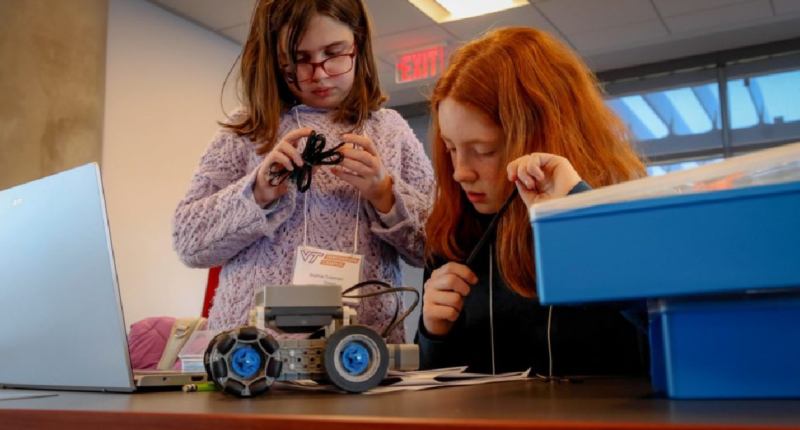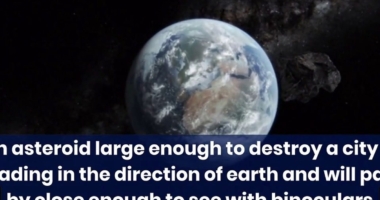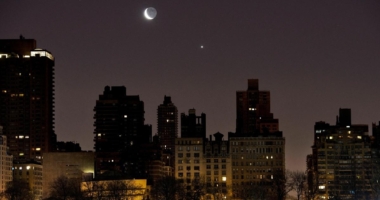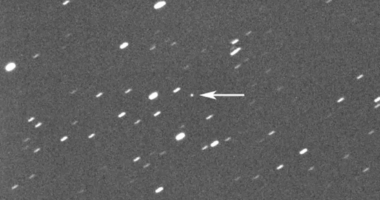Emily Altland, a Master of Science student in computer science, was thrilled to share her love of robotics with middle school students in the Project Red Rover Robotics Program. The program was designed to introduce students to computer science and STEM at an early age, preparing them for a global society. Dr. Pamela Gilchrist, Director of K-12 Programs at the Innovation Campus, highlighted that the program empowered students to build engineering skills, partner with fellow students, and work with engineers in the field. Alexandria students from four schools participated in the program and were given hands-on experience in building and programming a robot that simulated a Mars rover. The program aimed to inspire students to pursue careers in STEM fields and potentially lead to future discoveries in space exploration. At the closing ceremony, Dr. Lance Collins presented the participants with certificates and expressed gratitude to all who made the project possible. Alexandria students also won prizes in the C-SPAN Documentary Contest, demonstrating the community’s dedication to inspiring young minds.
Earlier this month, the Virginia Tech Innovation Campus K-12 Initiative hosted 36 students from four Alexandria schools to participate in a mock Mars mission called the Project Red Rover Robotics Program. Over four days, the student astronauts and engineers worked with 13 Virginia Tech engineering undergraduate and graduate students to build, program, and automate a robot that simulated a Mars rover. The mission’s goal was to collect and return soil samples without the need for humans to travel to the planet. The students were briefed on the mission by Dr. Ronald Gamble, a NASA Goddard theoretical astrophysicist, who highlighted that discoveries on Mars could offer essential clues about life on Earth.
The program was designed to be fun and engaging, and the students were able to build and program their rovers, competing to collect the most space samples and avoid debris. Parents, who observed the demonstrations, discovered that their children had not only built the rovers, but also programmed them to be autonomous. Graduate student Albert Kodua, who played a crucial role in creating the project’s space theme, said that he volunteered to create something that he wished he had when he was in middle school.
The four Alexandria schools that participated in the mock Mars mission were George Washington Middle School, Francis C. Hammond Middle School, Jefferson Houston PreK-8 IB School, and Patrick Henry K-8 School. The students were given an opportunity to work with college students and engineers to create a robot that simulated a Mars rover. The program aimed to teach the students about robotics and space exploration and inspire them to pursue careers in science, technology, engineering, and math (STEM).
The program was successful in engaging the students and providing them with hands-on experience in robotics and programming. The Project Red Rover Robotics Program is a great way to inspire the next generation of scientists and engineers and could potentially lead to future discoveries in space exploration.
Emily Altland, a Master of Science student in computer science, was thrilled to share her love of robotics with middle school students in the Project Red Rover Robotics Program. The program was designed to introduce students to computer science and STEM at an early age, preparing them for a global society. Dr. Pamela Gilchrist, Director of K-12 Programs at the Innovation Campus, highlighted that the program empowered students to build engineering skills, partner with fellow students, and work with engineers in the field.
The program helps build new pathways for students to pursue post-secondary goals. At the closing ceremony, Dr. Lance Collins, the vice president and executive director of the college’s Department of Mechanical Engineering, congratulated participants for completing the program successfully and presented them with certificates. The project was made possible with the help of faculty members, engineers, and volunteers who dedicated their time and efforts to inspire the next generation of scientists and engineers.
Innovation Campus continues to offer programs that help students develop their skills and pursue their goals. Recently, Alexandria students won prizes in the C-SPAN Documentary Contest, another example of how the community is inspiring young minds to achieve their full potential.
Don’t miss interesting posts on Famousbio










